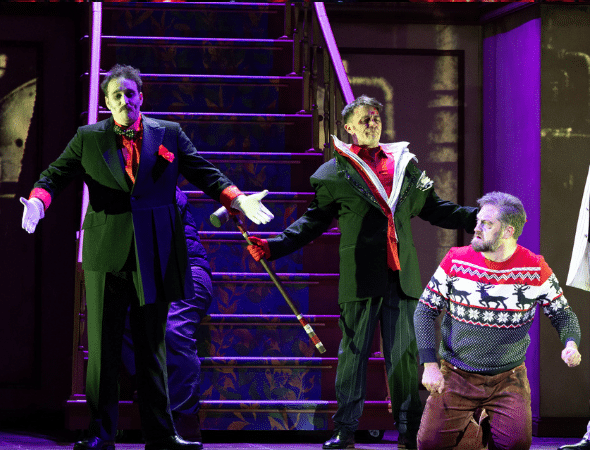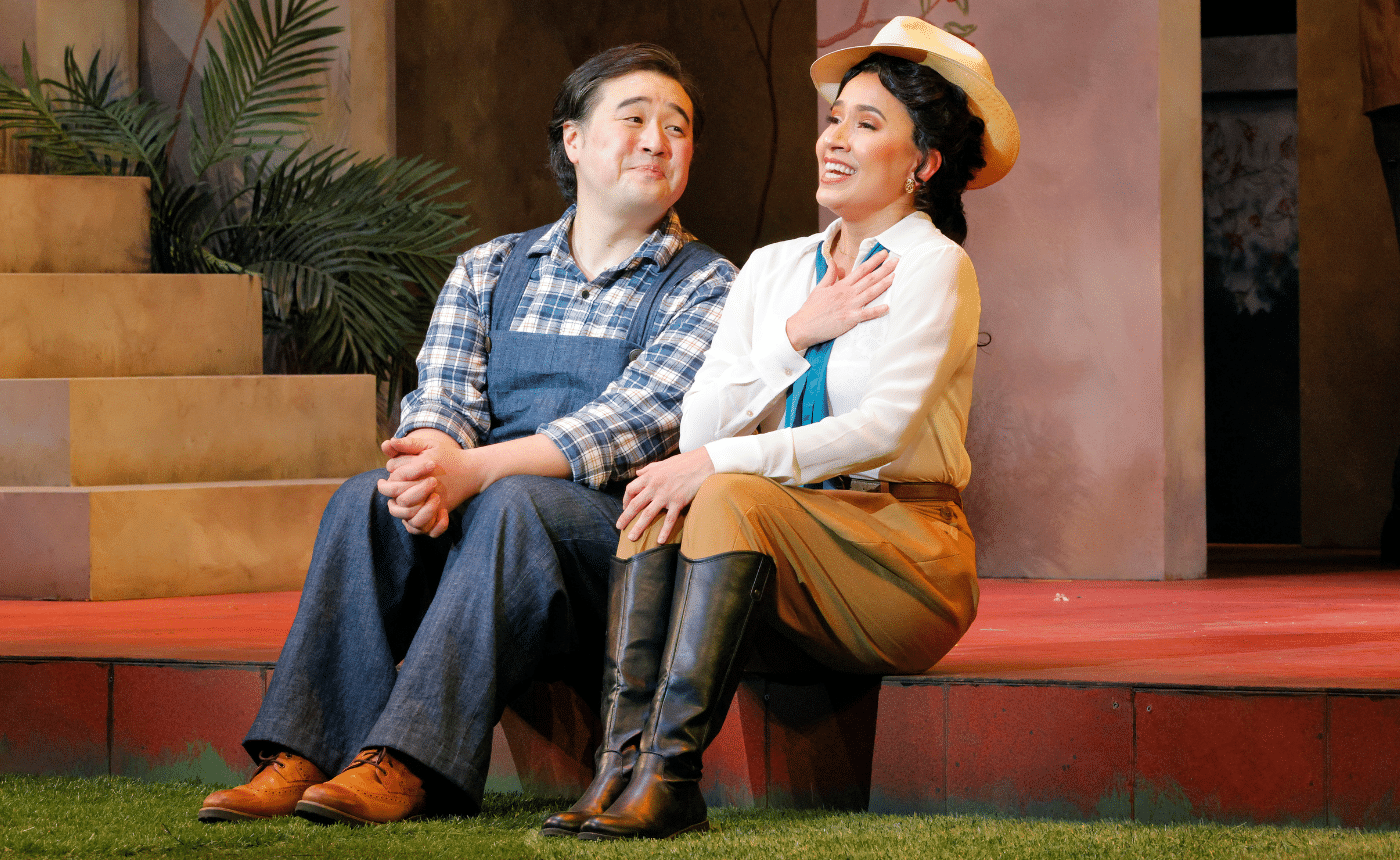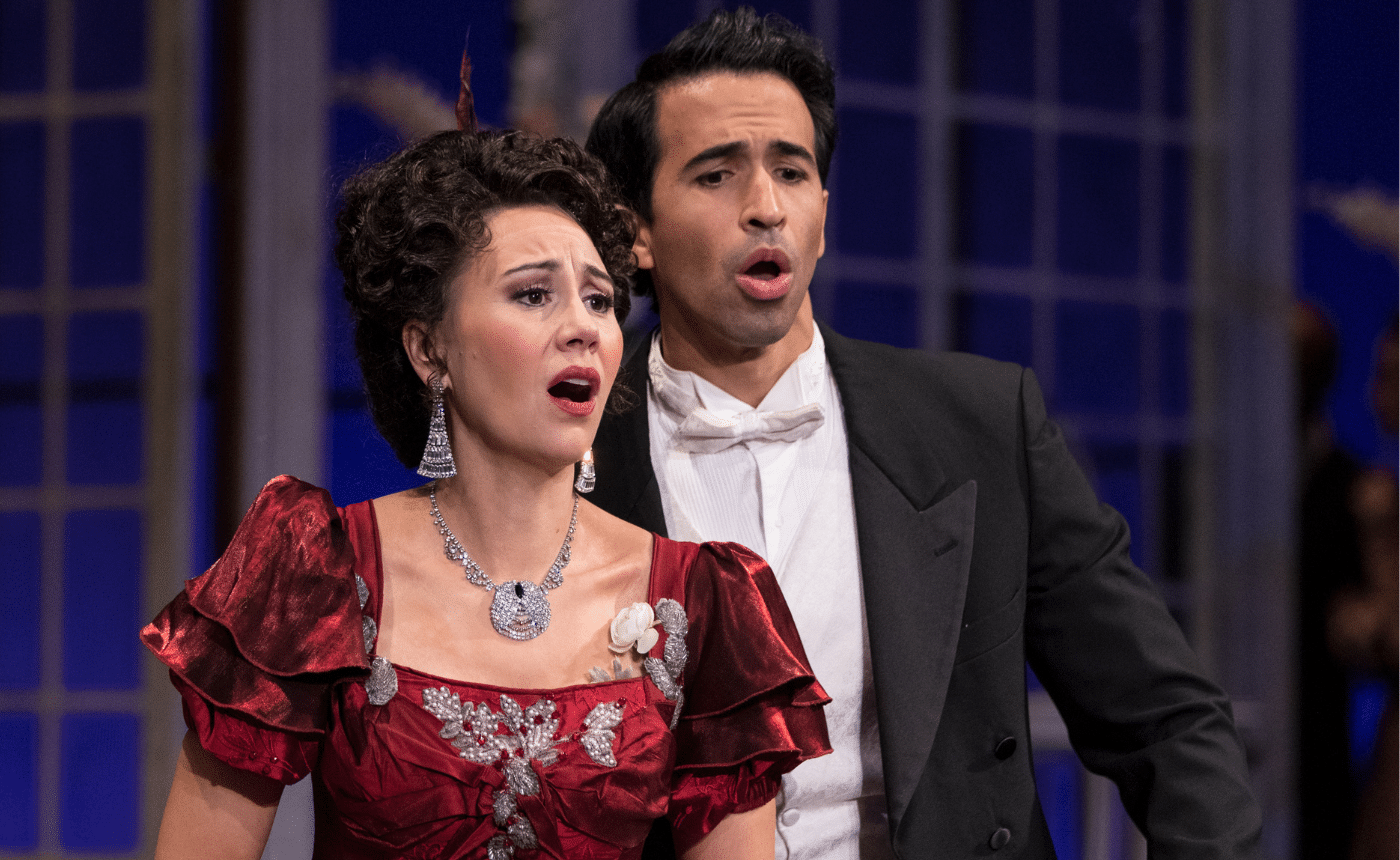The ShiningA Note from the Librettist
I’m very proud that Utah Opera is presenting another opera that I penned the libretto for, following the company’s splendid productions of Silent Night in 2019 (composer: Kevin Puts) and The (R)evolution of Steve Jobs in 2023 (composer: Mason Bates). It’s a very good thing that Christopher McBeth and his team recognize that Salt Lake City audiences cannot live on an operatic diet of Bohemes and Traviatas alone and like to shake up the repertoire now and then with new American work.
If The Shining is successful as an opera, it’s largely because of Paul’s and my choice to adapt it from Stephen King’s novel rather than the Stanley Kubrick movie. While the latter is deservedly iconic, it is, like many Kubrick movies, purposefully austere and anti-dramatic, and the audience knows from the get-go that Jack Torrance intends to murder his family (look no further than Jack Nicholson’s eyebrows in the opening scene). It can also border on camp with lines like “Here’s Johnny!” and the exaggerated portrayals of its secondary characters. In contrast, the novel is a masterful blend of horror and gripping drama, telling the story of a family struggling with mental illness. And it is decidedly operatic.

Bringing the novel to the operatic stage necessitated a few minor adjustments to that story. To instill a sense of claustrophobia, I placed most of the story in one setting: the Overlook Hotel. The novel spans several months; I condensed it to several weeks in Act I and made Act II unfold essentially in real time. I included four places in the libretto for orchestral interludes to show the passing of time and allow for the staging of the hotel to ‘come alive’; Jack Torrance’s increasing mental instability is dramatized through the inclusion of his abusive father Mark (who appears as an apparition in the book) and the staggered introduction of the hotel’s former guests, who we hear about, then hear, then vaguely glimpse, then see fully realized in the finale of Act I, as the first blizzard of the season seals the Torrance family inside. Finally, those apparitions are all part of Jack’s imagination—not paranormal activity; in the libretto, they never physically touch him.
All these changes honor the intent of the novel, but it’s really Paul’s music that has transformed The Shining into what is widely considered the most successful theatrical adaptation of a Stephen King work to date. From the opera’s opening chords to its beautifully wrought love songs to its crashing Act I and Act II finales to its powerful aria of healing in the epilogue, the score brilliantly captures in notes and measures the powerful and moving story King put forth in words and sentences.
Mark Campbell




